Fiction
Nonfiction

I've heard a lot about this book, so I decided to try and read it. What I enjoy about this book is that it could relate to a quite a few teenagers, and it has a bit of every genre. It's sad but happy, weird but funny, and dramatic but real. I could safely say, that this was one of the best books I've read this year. It starts off with a sixteen year old girl, Laura Jean. She was always a very good kid, listening to her parents and having good grades. Her older sister, Margot, was one of her best friends. She was just about to move to college, so she broke it off with her boyfriend, Josh. Seeing this, Laura got devastated because Josh had always been like a part of the family. Josh was upset too, since they've been together for two years. Laura thinks it's all just temporary and her sister would want to get back together with him. Margot soon was thinking about it, until she heard something from Josh. Something about her sister. This got her furious. I'm going to let you read about that by yourself. Later along in the book, like every other teenage girl, Laura has those few people that she's liked over the years. For those few guys, she's always wrote love notes for them and hid them away in a box, so she could know why she liked them, but forget about them because they were in the past. Until one day, when everything changed... Read to find out what happens.
Reviewer grade: 9
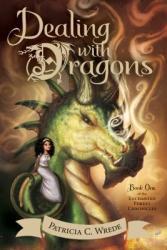
Dealing with Dragons is a novel about a princess named Cimorene. What's unusual about this particular princess is the fact that she is very improper. Unlike most princesses, she actually has a brain. When she learns of plans to wed her off to some cotton brained Knight, she runs away. She runs, not to the Enchanted Forest, not to some abandoned tower, but to a dragon's lair. I enjoy this book because of how well it puts you in the story. Once you start reading, you can't put it down. I recommend this book to anyone reading fairy tales, but not content with how stupid some of the characters are.
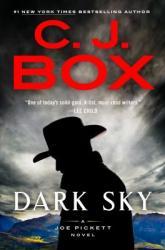
Dark Sky is a masterfully crafted thriller that strings together webs and webs of suspense through character development and wit. The novel takes place in the expansive wilderness of Wyoming, where Joe Pickett, a normal game warden, must evade a killer after his and his client's heads. Box does an incredible job of building up his characters and leaving room for the reader to question certain decisions and traits. The way the author ties everything together for an eventual climax will leave the reader on the edge of their seat, especially when the build-up leads to a nail-biting cliffhanger. The setting is also beautifully used to expand on both the plot and scenic writing in general, as the author clearly knows the terrain and all of its attributes. Overall, I would recommend this novel to anyone who loves a good thriller.
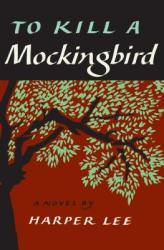
To Kill a Mockingbird is a novel entirely worthy of its praise. The humor, subtlety of the impact left by the narration from a young girl's perspective, and incredibly real themes all fit together perfectly. The story is a straightforward read and combined with the intricate storytelling based on the author's own life, the topics surrounding race and justice feel meaningful. The story follows Scout Finch, a young girl, and her friends Jem and Dill while depicting their views on life in the South during the Depression. The juxtaposition of childish natures and mature outlooks on violence, prejudice, and societal struggles brought about by the narration stand out. Each instance of injustice and depiction of the imperfections of humanity in a struggling society tie the development of the characters and rise to the climax together well. Overall, I would recommend this book to anyone, as it is a fantastic, and rather light read.
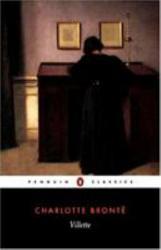
Villette is an incredibly hard read. The novel follows Lucy Snowe in her escape from England. She reminisces on her life's story and the overall storyline is intriguing. The side characters play their parts well, and certain tragedies in the story do leave hard-hitting impacts. Nevertheless, the book is over four-hundred pages of intricate literature with an incredible range of advanced vocabulary. However, the complexity of the read does add a bit of fun to the book, despite drawing attention away from the story itself. Looking up advanced English and French vocabulary almost makes the novel a neat, theatrical dictionary. While hard to understand and read, it allows the reader to dive deeper into each character and develop them more on a personal level. Overall, I would only recommend this book to people looking for a challenging read and with time on their hands.
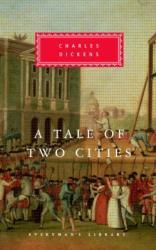
A Tale of Two Cities is a grand novel by Charles Dickens that details the events of Charles Darnay and Sydney Carton, along with many other characters, throughout the beginning the middle of the French Revolution. The book starts off a little slow, but after getting through most of the exposition, the book turns into an undoubtable classic. The main characters are detailed thoroughly, and their motivations fuel their bond and the plot beautifully. The inner conflicts they face all fit into place like pieces of a puzzle over the course of the novel, which leaves the reader both satisfied and distraught at the same time. The sub-plots also tie the story together well, and the heroic ending is written perfectly. The setting of the French Revolution, romance, and character development throughout the story creates a captivating bond with the reader and always leaves one in a state of suspense. The themes relating to the greater scale of humanity and sacrifice also leave a lasting message. Although it is a decently long read, I would recommend A Tale of Two Cities to anyone as a must read.
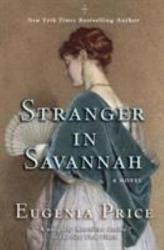
Stranger in Savannah is the final chapter of Eugenia Price's Savannah Quartet series and fills the niche of a Southern historical romance novel.
The novel follows the Browning, Mackay, and Stiles families and does an excellent job of creating drama related to the buildup of the American Civil War. While I do not often read romantic novels and the like, Stranger in Savannah feels very realistic thanks to its historic references. The setting of the Civil war and the air of political tension gave life to the drama, however, the underlying themes and Mark Browning as a character were all the more captivating. The book also drew me in with each characters' ambitions being intriguing and thoroughly fitting in major and minor plot points surrounding the setting and cast of the quartet. Overall, the novel was a fitting end to the series, and I would recommend not only this book but the entire Savannah Quartet to those interested in thematic historical romance.
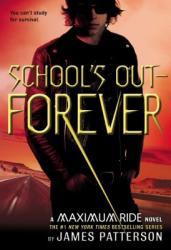
After the amazing complexity of The Angel Experiment, James Patterson’s School’s Out-Forever, is a slightly less-complex sequel in which the teens must navigate the muddy waters of public school while trying to stay out of the grasp of their previous captors. It features one large new addition to the story, an imposter among the group. Who could this imposter be? What is their purpose? There is only one way to find out, read the book. I enjoyed this book less than The Angel Experiment, primarily because it can get confusing at times in its complexity, but I would still recommend it to anyone who enjoyed the first book.
Grade: 11
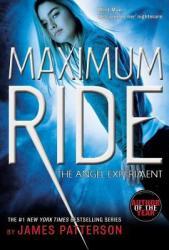
The Maximum Ride series by James Patterson is an amazing young-adult science-fiction series which follows the journey of six individuals who were given wings and other bird-like abilities by a genetics experiment. In the first novel, The Angel Experiment, the six have escaped the laboratory where they were held prisoner and are trying to remain free while being hunted by human-wolf hybrids that the experimenters have also sent to hunt them. I enjoyed the complexity of The Angel Experiment and would recommend it to anyone who enjoyed movies like Wolverine.
Grade: 11.
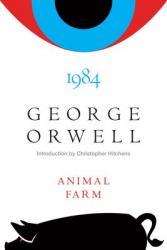
1984 by George Orwell is a phenomenal piece of dystopian literature that comments on the role of government and what freedom really is. The book follows the story of a lower ranking party member named Winston Smith who begins to defy the ideals of Ingsoc or "English Socialism" and the thought police. 1984 imagines what the world would have been like if the Axis powers in World War II had won/ if the war had never ended. I highly suggest this book be read along with Brave New World by Aldous Huxley because the juxtaposition between the two is fascinating. I recommend any reader who enjoys dystopian, philosophical, political, historical, or science fiction to read this book as it encapsulates all of those genres.
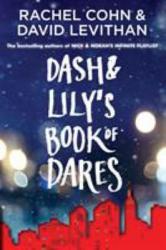
Dash & Lily’s Book of Dares, co-authored by Rachel Cohn and David Levithan, is a lighthearted romance set at Christmastime. When Lily, a spunky nerd, leaves a red notebook filled with mysterious clues at the Strand in New York City, an unexpected relationship begins. Her notebook is found by Dash, a cynic who detests Christmas, and thus begins a montage of absurd dares as the red notebook is passed back and forth around New York City by the two teenagers and their strategically-placed relatives. Along the way, Dash and Lily come to believe they love each other, though they’ve never set eyes on each other before.
This book lacks a stable plot and character development. Lily’s character is unbearably obnoxious and immature, while Dash’s cynicism is over-the-top and irritating. Lily undergoes virtually no change through the duration of the book; however, Dash does open up and become slightly less self-absorbed. The authors’ excessive use of big, flowery language did not fit the characters. It seemed as though the authors believed this was necessary in order to portray Dash and Lily (mostly Dash) as intelligent and intellectual beyond their years, but I found it to be distracting and inappropriate for the context. The plot of this book was severely lacking. It was chaotic and disjointed, and never reached a strong climax. I was irritated with the unrealistic and completely bizarre parts, and disappointed when the ‘romance’ fell flat.
I understand that this book is meant to be fun and amusing, but it would have been much higher quality with likable characters and a coherent plot. I enjoyed the Christmas-y setting, but I believe the authors could’ve used New York City in a more impressive way for the dares. Only read this book if you’re in the mood for a fluffy, vapid story with no substance whatsoever. There are lots of Christmas romances out there, and I’m sure most are better than this one.
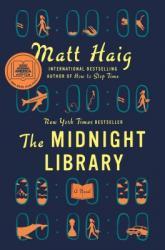
Matt Haig's unique novel The Midnight Library ponders the infinite possibilities of life. It is about a young woman named Nora Seed, who lives a monotonous, ordinary life and feels unwanted and unaccomplished. One night, her despair reaches a peak and she commits suicide. But the story doesn't end there--Nora gets a chance to experience various ways her life could've unfolded had she made slightly different choices. She finds herself in a place called the Midnight Library, which exists between life and death and is filled with books in which lie endless parallel lives she might've lived; she is given the chance to undo her regrets by trying out these lives, starting right where her alternate self would've been on the night she ended her life. While in the Midnight Library, Nora lives hundreds of lives and becomes hundreds of different versions of herself--some she'd never even fathomed--but she is faced with a difficult decision. She must decide what she is willing to sacrifice in order to live permanently in one of these 'ideal' lives, where they seem perfect for a time but, as she realizes, there are really new sets of challenges awaiting. Nora's exploration of herself is captivating as she attempts to discern what is really important in life.
This novel is very well-written and thought-provoking. Nora's emotions are deeply portrayed, and I was captivated by the depth of Haig's storytelling. While the concept is simple, it drew me in as a reader and encompassed so many different emotional experiences that come with life. I spent much of The Midnight Library reflecting on my own life and the decisions I've made, as well as looking to the future and imagining the infinite possibilities--this is a sign of a talented author. While I appreciated the depth of this novel, sometimes it took on a repetitive, almost pedantic tone when an important idea was already clear but kept being elaborated on--this was common when life lessons came up. There were also attempts to make Nora's life-jumping seem scientifically possible, with reference to quantum physics, and I didn't think this was necessary, as the focus was on Nora's life and personal growth. Overall, I very much enjoyed The Midnight Library. The character development, setting, and plot are engaging, while also discussing important themes such as mental health.
I would recommend The Midnight Library to teens and adults alike. It's a short, worthwhile read that will get you thinking and have you on the edge of your seat. And it may just awaken you to how much unlocked potential you have!
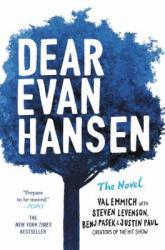
I would recommend Dear Evan Hansen to any teen looking for an interesting book to read. The book was different from the usual book I used. It gave an insight into mental health issue that many teens struggle with today. The book was not predictable and had many surprising moments. I chose the book because it sounded familiar and I ended up making a good choice.
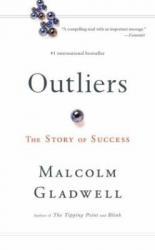
Malcolm Gladwell takes a unique perspective on success in Outliers. Rather than focusing on the brilliance, innate talent, or incredible work ethic of successful people, Outliers concentrates on the advantages and unique opportunities surrounding the successful. Gladwell analyzes the culture, families, generation, and the upbringings of many successful people and groups of people from Bill Gates and successful New York lawyers to Canadian Hockey Players and airline pilots. Above all, Gladwell emphasizes that the truly successful do not do it alone, and Outliers encourages people to examine their own opportunities and advantages so that they too may become successful. I thoroughly enjoyed this book and highly recommend it for everyone.
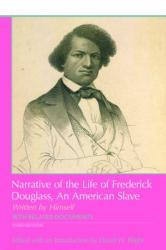
The Narrative of the Life of Frederick Douglass, an American Slave by Frederick Douglass illustrates Douglass's life during slavery in Maryland and his attempts to make it to freedom. This narrative demonstrates the horrific situations/events and the terrible way slaves were treated throughout the time period of slavery way deeper than the average history text book. The narrative is extremely informative about life's of slaves since it goes into specifics about slaves being born, their living quarters, amounts of food, the masters, etc. It is very difficult to relate to or know exactly how a slave was treated in this time period; however, this book allows readers to understand the hideous and fearful actions that were taken against these human beings. This narrative brought tears to my eyes and shocking expressions to my face when reading certain real events that took place. Overall, I really enjoyed this book and it was extremely well written because it allowed me to see more than what is taught in an American History class because Frederick Douglass goes so in-depth about his experiences in slavery throughout the narrative.
Reviewer grade: 11
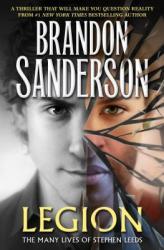
I devoured this book (a set of three novellas) in three days and really enjoyed it. Brandon Sanderson is such a creative author, and here's yet another book of his that doesn't fail to impress. It tells the story of Stephen Leeds, who creates hallucinatory "aspects" with certain specialties to help him compartmentalize his knowledge to learn things and master abilities. He uses their help to solve mysteries as a way to give himself a purpose. Stephen's cases were intriguing to follow, and his aspects were really fun characters to get to know and get invested in. Stephen himself felt rather flat at the beginning, but as I read further, I realized that was an intentional decision. Because of his aspects, his personality is contained in all of them, so without them, he's sort of empty. It was awesome to watch him grow in this.
The only reason I gave the book 4 stars instead of 5 is because, as a set of novellas, the first two don't relate very much to the third, or to each other. I wish he had found a way to tie the cases into the finale more than he did. Otherwise, a great read, especially for a quiet weekend at home. I would definitely recommend!
Reviewer grade: 10
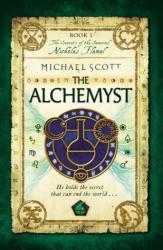
The Alchemyst is a book following a pair of seemingly ordinary twins, Sophie and Josh. When the truth comes out about their role in the future, Nicholas Flamel races against time to keep them safe. At the same time, Dee, an old enemy of Flamel, is holding his wife captive. This adds extra stress on Flamel, with the already strenuous task of keeping the twins safe. One of the things I enjoy in this book is the magic involved. To create the magic spells and objects, you have to sacrifice something. For example, when Sophie creates some very sudden fog, she sacrifices a lot of calories and most of her self-replenishing aura. This is a good book for anyone looking for magical adventures, and a mystery as old as Earth itself.
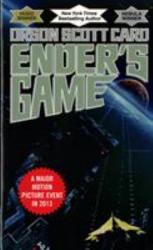
I've read this book so many times, and I always love it. It tells the story of the child prodigy Ender Wiggin, who starts the book at only six years old. In a dystopian world that's in the midst of a war with the alien Buggers, Ender and other highly gifted children are taken to Battle School to prepare them to fight in the Third Invasion, when Earth plans to invade the Buggers and hopefully beat them once and for all. Ender is smart, creative, and compassionate, while also sometimes being cruel in moments he needs to protect himself. He's such a well-developed and dynamic character, and I can always find myself relating to him, whether it's as a gifted child, as he questions who he is, as he grows up, or as he misses home and the way things used to be. It's easy to feel for him, from outrage at the officers to treating him unfairly to warmth in your heart when he builds relationships despite his forced isolation. He faces the trials of Battle School, but he also faces the trials of childhood and growing up. The book tackles themes of lies, control, isolation, free will, family, childhood, compassion, enemies, and prejudice in ways that are always very well-done. It balances action and shocking twists with character development and philosophy into a narrative that flows beautifully and keeps you engrossed from the first page to the last. Everything about it is exceptional, and I don't think I could ever get tired of it. I would recommend to anyone, any gender, any age, because it is certainly very near the top of the best books I've ever read.
(note: there is a small amount of language)
Reviewer grade: 10
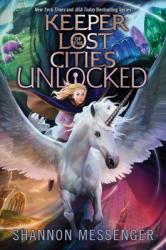
I was honestly kind of disappointed with this book, and it felt like a cash grab to me more than anything. I've been enjoying the Keeper of the Lost Cities series for years and I was looking forward to this release as much as any other, but it was anticlimactic, to say the least. As advertised, the majority of the book isn't actually story, but "exclusive Keeper details" that had me excited at first, but after I read the book, felt more like the author had copy and pasted her world building document. I understand that world building is fun and that she wants to share all these interesting details she's come up with, but most of it was information people already know if they've read the rest of the books, and I'm disappointed she mixed it in with a book in the series, forcing everyone to buy unnecessary content when the only actual series content is a short novella at the end that's hardly able to advance the plot. I wish that, if she wanted to release an extra world building book, she had done it separately from the yearly release so that people can read it if they want, but don't have to. The novella though, that actually continued the series, was great! I loved the alternating point of view between Sophie and Keefe.
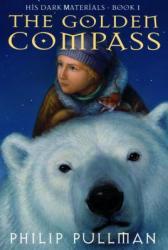
The Golden Compass is elegantly crafted with beautiful word choice, and I would definitely recommend it. The plot was gripping with many exciting twists and revelations along the way as protagonist Lyra Belacqua and her daemon, Pantalaimon, who's basically an animal manifestation of her soul, embark on a journey across their world to the North. There, Lyra intends to both rescue her friend and find her uncle. Lyra is such a fun character to read about, being clever and witty and ultimately someone the reader will root for and invest themself in through the whole book. The world-building, too, is really well done. Pullman paints a picture of a world parallel to ours, yet different in so many ways, and things like daemons, gyptians, armored bears, and dust are all incredibly creative. The one thing I would warn against is some somewhat anti-religious commentary (not so much in this book, but it grows more prominent in the Subtle Knife and the Amber Spyglass) that may make some readers uncomfortable.
Reviewer grade: 10





 Ruth Holley Library will be temporarily closed for approximately one week starting Mon., Dec. 2 to complete roof repairs.
Ruth Holley Library will be temporarily closed for approximately one week starting Mon., Dec. 2 to complete roof repairs.